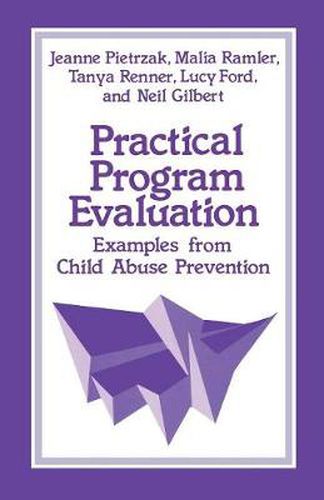Readings Newsletter
Become a Readings Member to make your shopping experience even easier.
Sign in or sign up for free!
You’re not far away from qualifying for FREE standard shipping within Australia
You’ve qualified for FREE standard shipping within Australia
The cart is loading…






This manual facilitates programme self-evaluation research so that it can be conducted with a minimum of outside, technical assistance. Part one features a discussion of three distinct models of evaluation: Input, Process and Group or Client Level Outcomes. Part two features common technical elements of Programme Evaluation Research and presents simple information and instructions on how to perform some specialized research procedures. Topics related to choosing samples, selecting research designs, constructing data collection instruments, scheduling data collection, training data collectors and analyzing findings are covered. An annotated guide to practical, hands-on-materials on self-evaluation is also provided. Throughout this manual, examples and case illustrations are drawn from a wide range of child abuse prevention programmes. For the evaluator familiar with research design and methods, but not an expert in child welfare, the manual provides strategies and resources such as data collection instruments, that are specific to the field. For students of child abuse prevention and programme staff, the manual provides a guide to the complex process of programme evaluation research.
$9.00 standard shipping within Australia
FREE standard shipping within Australia for orders over $100.00
Express & International shipping calculated at checkout
This manual facilitates programme self-evaluation research so that it can be conducted with a minimum of outside, technical assistance. Part one features a discussion of three distinct models of evaluation: Input, Process and Group or Client Level Outcomes. Part two features common technical elements of Programme Evaluation Research and presents simple information and instructions on how to perform some specialized research procedures. Topics related to choosing samples, selecting research designs, constructing data collection instruments, scheduling data collection, training data collectors and analyzing findings are covered. An annotated guide to practical, hands-on-materials on self-evaluation is also provided. Throughout this manual, examples and case illustrations are drawn from a wide range of child abuse prevention programmes. For the evaluator familiar with research design and methods, but not an expert in child welfare, the manual provides strategies and resources such as data collection instruments, that are specific to the field. For students of child abuse prevention and programme staff, the manual provides a guide to the complex process of programme evaluation research.